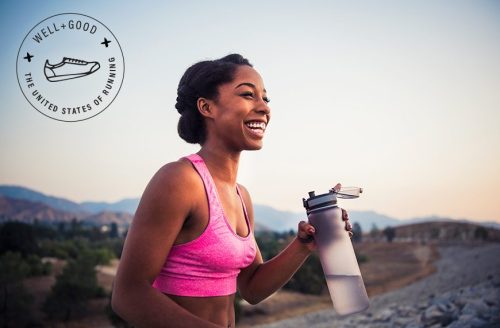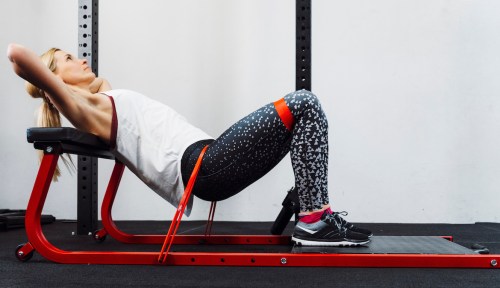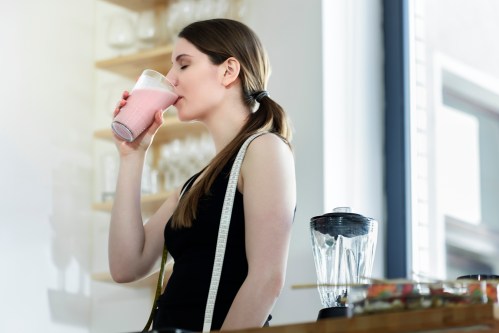There are a whole lot of things you’ve got to take into consideration when you’re tackling a run. What should I wear? What route should I take? Am I going to do it alone, or should I hit up a friend? Something that commonly gets overlooked: How much water should I drink when running? When it comes to exercising, your hydration strategy is just as important as your training plan. And if you’re one to overlook getting in the necessary amount of H2O before, during, or after your workout—the work itself can suffer.
“Our metabolism runs on a lot of different things, but we need water available to function properly,” says Heather Milton, MS, RCEP, CSCS, an exercise physiologist and clinical specialist at NYU Langone’s Sports Performance Center. “When you are dehydrated, even just a little bit, it can cause reductions in performance. In order to get the most out of your workouts, you’ll want to be on top of your water game.”
Dehydration also decreases your sweat rate, which is how your body regulates temperature. When you sweat less, the effort can feel harder (an increase in what science types refer to as “rate of perceived exertion”) and you’re at a greater risk for overheating.
So what’s the Goldilocks amount of hydration? Exercise aside, the Centers for Disease Control and Prevention (CDC) suggest women drink 2.7 liters (91 ounces) of total water each day. To prep for effort, the American College of Sports Medicine (ACSM) recommends that you drink about 500 ml of fluid—which is roughly 17 ounces—two hours before exercise. And during the effort? The American Council on Exercise recommends drinking 7 to 10 ounces of fluid every 10 to 20 minutes during exercise, and 16 to 24 ounces of fluid for every pound of body weight lost after exercise.
That’s a lot of numbers, we know. While these are good benchmark suggestions, it’s important to remember that it all really varies from person to person. First, look at your effort levels. If you’re doing a quick 20-minute run with a friend, you won’t necessarily need to stop halfway through to grab a sip. However, if you’re about to do a 10-mile long run, you’re going to want to have hydration on hand to sustain a longer performance. Of course, be mindful of not drinking too much at once which can translate to side-stitches and feeling sloshy.
The golden rule, according to Milton, is to replace every pound of weight you’ve lost during exercise with a liter of water once you’re done. To get a decent benchmark of what kind of water you’re losing during exercise, you can do an at-home sweat test. “Before you do a 40-minute workout, for example, weigh yourself before,” says Milton. “Then, weigh yourself afterward and compare the numbers. If you know how much you’ve lost, you know how much your sweat rate is.”
Another variable to take into consideration? Environment. “If you’re in a more humid or moist environment compared to dry, then you are probably going to sweat more,” says Milton.
What about sports beverages, which promise not just to hydrate, but to replenish electrolytes? Just make sure you use them appropriately. Great for longer endurance runs, Milton says you won’t need them if you’re losing less than a liter of fluid during your workout. “Once you get more toward the 90-minute to two hour prolonged exercise range, that’s when you would want to supplement with something with electrolytes,” she says. “In those instances, your body is losing salt in the sweat. You’ll want to replenish that for optimal muscle function and fueling.”
If you’re interested in sports drink replacements, check out these options and there are a dozen ways to boost the water you’re drinking.
Sign Up for Our Daily Newsletter
Get all the latest in wellness, trends, food, fitness, beauty, and more delivered right to your inbox.
Got it, you've been added to our email list.










